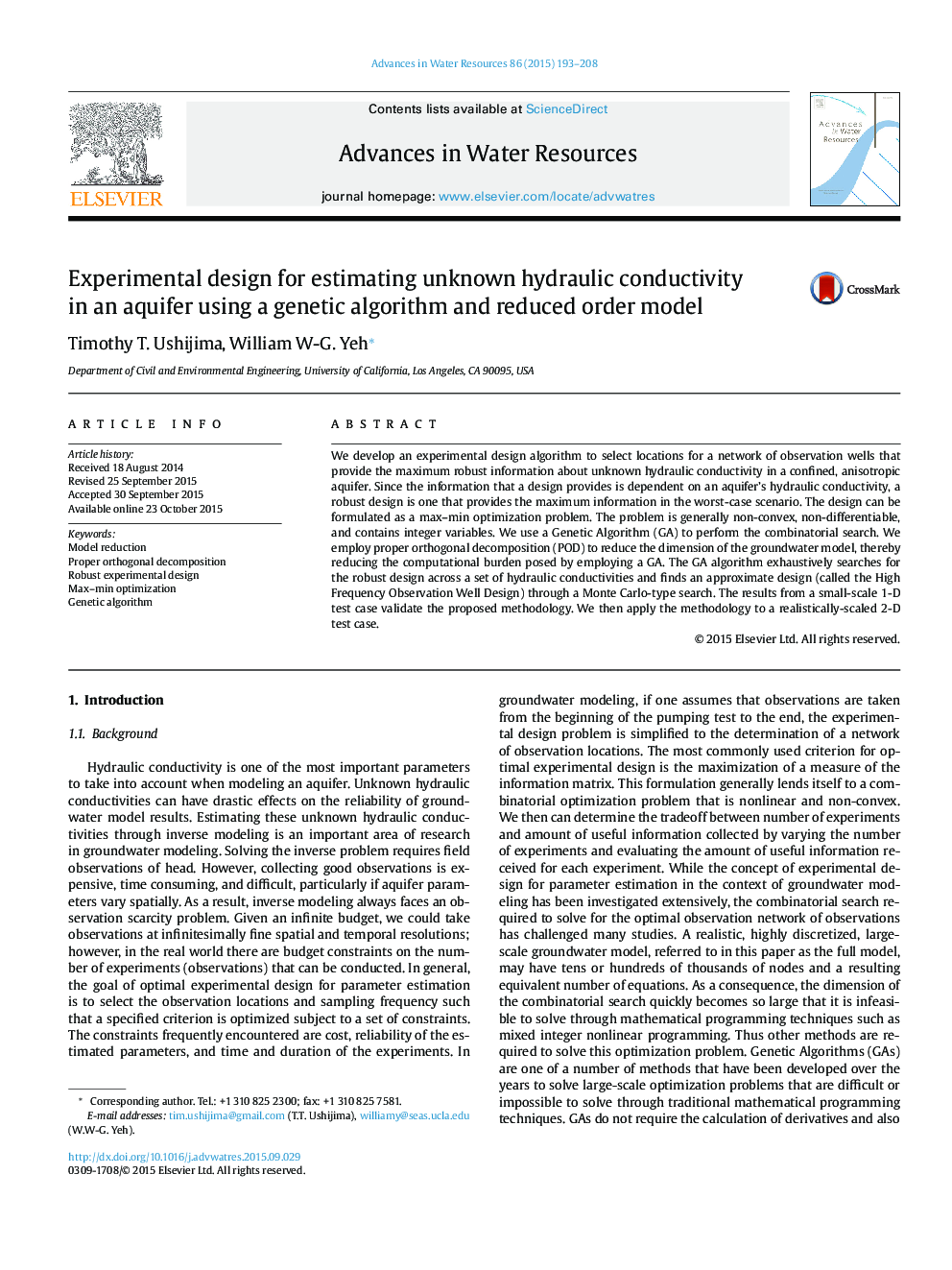| Article ID | Journal | Published Year | Pages | File Type |
|---|---|---|---|---|
| 6380875 | Advances in Water Resources | 2015 | 16 Pages |
â¢We developed an algorithm for robust experimental design.â¢We use a genetic algorithm to solve a max-min optimization problem.â¢We use model order reduction to reduce the computational cost.â¢We use proper orthogonal decomposition to reduce the dimension of the model.â¢We use Monte Carlo analysis to approximate the optimal design.
We develop an experimental design algorithm to select locations for a network of observation wells that provide the maximum robust information about unknown hydraulic conductivity in a confined, anisotropic aquifer. Since the information that a design provides is dependent on an aquifer's hydraulic conductivity, a robust design is one that provides the maximum information in the worst-case scenario. The design can be formulated as a max-min optimization problem. The problem is generally non-convex, non-differentiable, and contains integer variables. We use a Genetic Algorithm (GA) to perform the combinatorial search. We employ proper orthogonal decomposition (POD) to reduce the dimension of the groundwater model, thereby reducing the computational burden posed by employing a GA. The GA algorithm exhaustively searches for the robust design across a set of hydraulic conductivities and finds an approximate design (called the High Frequency Observation Well Design) through a Monte Carlo-type search. The results from a small-scale 1-D test case validate the proposed methodology. We then apply the methodology to a realistically-scaled 2-D test case.
